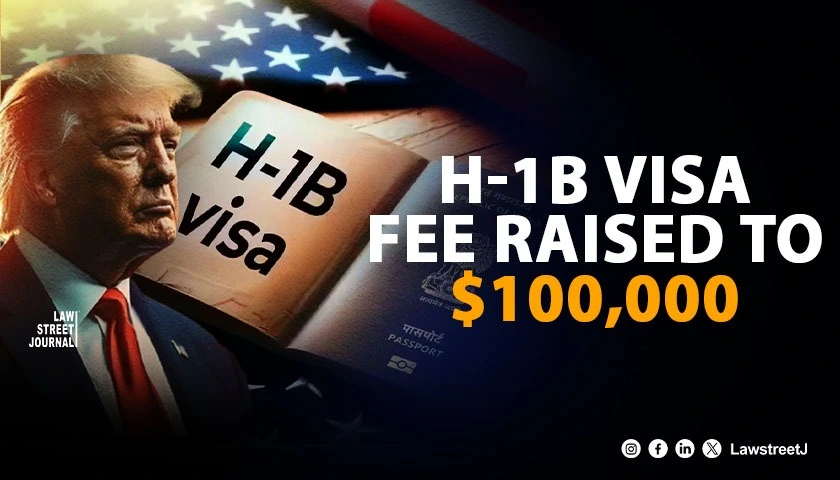WASHINGTON: The United States has announced a significant hike in the H-1B visa filing fee, raising it to $100,000 under a presidential proclamation that took effect at 12:01 a.m. EDT on Sunday.
According to the U.S. Citizenship and Immigration Services (USCIS), the revised fee applies only to new H-1B petitions filed on or after the effective date. Existing H-1B visa holders, approved petitions awaiting action, and renewals or extensions will not be impacted. Travel on a valid visa stamp also remains unaffected.
USCIS clarified that employers, not employees, are required to bear the cost of filing, in line with existing law. Companies are generally prohibited from passing mandatory H-1B costs to employees, except for optional services such as premium processing.
Impact on Industry
The H-1B program is a primary route for U.S. companies to hire skilled foreign professionals, particularly in the technology sector. Indian nationals account for over 70% of approved H-1B petitions each year, making the policy change particularly significant for Indian IT firms and professionals.
Major U.S. technology companies such as Amazon, Microsoft, and Meta, along with Indian IT service providers including Tata Consultancy Services (TCS) and Infosys, are among the largest users of the program.
Industry body NASSCOM expressed concern over the sudden implementation, citing risks to business continuity for Indian firms managing U.S. projects. It also noted that the steep fee increase could disproportionately affect mid-sized firms and startups, though larger companies may be able to absorb the additional cost.
Market Reaction
Shares of several Indian IT companies listed in the United States fell sharply following the announcement. Analysts said while large technology firms may adjust to the increased costs, smaller firms and early-stage companies could find it difficult to manage cross-border hiring under the new rules.
Policy Context
The White House said the fee increase is intended to ensure that H-1B petitions are used for highly skilled and high-paid roles, while addressing concerns of program misuse. Officials pointed to cases of companies securing large numbers of H-1B visas while simultaneously reducing U.S. jobs as one of the reasons for the policy change.
The Road Ahead
The proclamation is expected to reshape hiring strategies across the technology sector, with greater reliance on local hiring in the U.S. and increased offshoring to countries like India. Companies may also explore alternative visa categories, including the L-1 intra-company transfer visa, though experts caution this could invite additional scrutiny.
legal


![India reacts to US accusing Indian in foiled plot to kill Khalistan separatist [Read Unsealed Indictment]](/secure/uploads/2023/11/lj_1593_Khalistan_Row.jpg)







